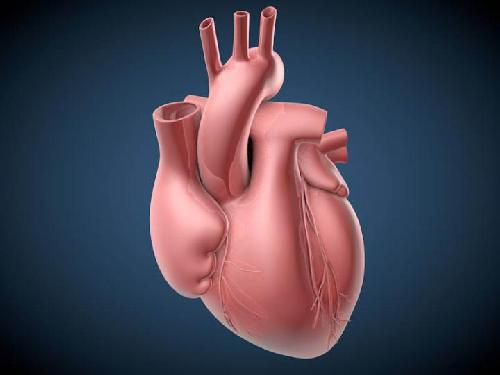A new study uncovers a type of noncoding RNA that drives heart failure in mice as a potential therapeutic target for heart disease. Only 1.5% of the human genome encodes proteins, while the rest remains either untranscribed or converted into noncoding RNAs, molecules that do not code for proteins. These molecules remain largely uncharted territory in the human genome landscape, especially in the context of disease. Janika Viereck and colleagues now identify a long noncoding RNA (lncRNA) they call Chast, short for cardiac hypertrophy-associated transcript, that may promote cardiac hypertrophy. The condition causes abnormal enlargement of heart muscle, which often leads to heart failure and death. The researchers found that Chast was specifically up-regulated in heart muscle cells of mice with heart failure. Overexpressing Chast triggered hypertrophic growth of heart muscle cells in culture, whereas silencing it reduced abnormal growth. Compared to healthy human hearts, hypertrophic heart tissues from patients with aortic stenosis highly expressed the human homolog CHAST. Experiments suggest that the lncRNA may drive the disease by blocking autophagy, or normal degradation, of heart muscle cells. Treating mice with an inhibitor known as an antisense oligonucleotide that targeted Chast both prevented and treated cardiac hypertrophy and improved heart function. Altogether, the findings set the stage for developing inhibitors of CHAST and other lncRNAs to treat heart failure in patients.
 Abnormal enlargement of the heart muscle, known as cardiac hypertrophy, can lead to heart failure. A new study pinpoints a long noncoding RNA called Chast, which drove cardiac hypertrophy in mice, as a potential therapeutic target for the disease. This material relates to a paper that appeared in the Feb. 17, 2016, issue of Science Translational Medicine, published by AAAS. The paper, by J. Viereck at Hannover Medical School in Hannover, Germany, and colleagues was titled, "Long noncoding RNA Chast promotes cardiac remodeling." Credit: C. Bickel / Science Translational Medicine (2016)
Abnormal enlargement of the heart muscle, known as cardiac hypertrophy, can lead to heart failure. A new study pinpoints a long noncoding RNA called Chast, which drove cardiac hypertrophy in mice, as a potential therapeutic target for the disease. This material relates to a paper that appeared in the Feb. 17, 2016, issue of Science Translational Medicine, published by AAAS. The paper, by J. Viereck at Hannover Medical School in Hannover, Germany, and colleagues was titled, "Long noncoding RNA Chast promotes cardiac remodeling." Credit: C. Bickel / Science Translational Medicine (2016)
source: American Association for the Advancement of Science